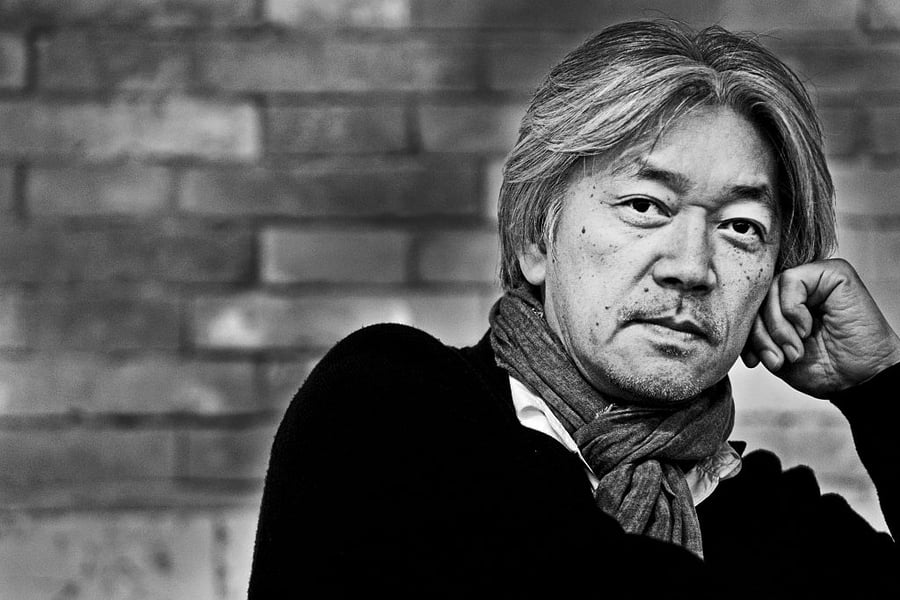Ryuichi Sakamoto, keyboardist for the pioneering Japanese electronic music band Yellow Magic Orchestra and Oscar-winning composer of films like The Last Emperor and The Revenant, has died at the age of 71.
Sakamoto’s Twitter announced his death Sunday, noting that the influential artist died on Tuesday, March 28; while no cause of death was provided, Sakamoto battled two forms of cancer over the past decade, and announced in 2021 that he had been diagnosed with stage 4 rectal cancer.
Commmons, the record label Sakamoto founded, added in a statement Sunday, “While undergoing treatment for cancer discovered in June 2020, Sakamoto continued to create works in his home studio whenever his health would allow. He lived with music until the very end. We would like to express our deepest gratitude to his fans and all those who have supported his activities, as well as the medical professionals in Japan and the U.S. who did everything in their power to cure him. In accordance with Sakamoto’s strong wishes, the funeral service was held among his close family members.”
Commons also shared one of Sakamoto’s favorite quotes, “Art is long, life is short.”
Sakamoto’s death comes just over two months after his Yellow Magic Orchestra bandmate Yukihiro Takahashi died at the age of 70 from aspiration pneumonia.
In 1978, Sakamoto — at the time a classically-trained session musician — along with drummer/singer Takahashi, and bassist/keyboardist/vocalist Haruomi Hosono (previously of the famed Japanese rock bands Apryl Fool and Happy End) joined forces to found the the supergroup Yellow Magic Orchestra. Utilizing synths, sequencers and drum machines, the trio were trailblazers in the electronic genre, ushering in the Eighties electro sound.
“I never wanted to be a musician or to be famous,” Sakamoto told Criterion in 2017. “I began training in music when I was little and attended a music university, but I never wanted to do it professionally. Then I joined the Yellow Magic Orchestra because I wanted to work with those two very talented musicians. The band became very well-known all of a sudden. So it was an accident for me; it’s not what I wanted to pursue. Music is always there and has always been beside me, but I like literature and cinema and other things as well. I thought I could write a novel or make a film.
Like his groundbreaking work with Yellow Magic Orchestra, Sakamoto’s solo albums proved influential for the artists developing the sound of hip-hop in the early Eighties, notably his 1980 LP B-2 Unit. That album spawned the electro single “Riot in Lagos,” which in turn informed the music of Afrika Bambaataa and Mantronix.
“Thank You Ryuichi Sakamoto 🙏🏾 for your gifts,” Questlove wrote on social media Sunday. “Sad to see another force leave this planet. Even if he name isn’t familiar his influence on ANY artist you ever tested your b-boy b-girl poppin/lockin/breakdance/electric boogie sites HIM as their god.”
The always-experimenting Sakamoto also spent the first half of the Eighties collaborating with the likes of dub legend Dennis Bovell and synthpop singer David Sylvain, and made his big screen debut in the David Bowie-starring 1983 war film Merry Christmas, Mr. Lawrence; that film also marked Sakamoto’s first score, and would later win the BAFTA in that category.
The prolific Sakamoto continued to balance his solo work (including his renowned 1978 LP Thousand Knives) with his frequent collaborations and burgeoning career as a film composer. In 1987, director Bernardo Bertolucci enlisted Sakamoto, along with David Byrne and Chinese composer Cong Su, to create the score for his epic The Last Emperor. The trio’s work on the film resulted in an Academy Award for Best Original Score, as well as a Grammy for Best Score Soundtrack for Visual Media.
Sakamoto would later re-team with Bertolucci for the filmmaker’s The Sheltering Sky and Little Buddha, as well as forge collaborations with directors Brian De Palma (scores for Snake Eyes, Femme Fatale) and Alejandro González Iñárritu, who recruited Sakamoto, alongside Alva Noto and the National’s Bryce Dessner, for the score for 2015’s The Revenant.
Sakamoto’s recent scores include an episode of Black Mirror and the 2021 action film Beckett starring John David Washington.
In 2014, Sakamoto was first diagnosed with throat cancer, resulting in a yearlong hiatus from music as he battled the disease. “I decided to cancel all the projects. Everything. I couldn’t cancel just a few here, but still doing this. So I canceled everything,” Sakamoto told Rolling Stone in 2015. “I had plenty of time not doing anything, maybe since I was early-20s or something, when I was a student. First time in 40 years. … Of course, treatment was the most important thing and I had the most harsh, physically painful time in my life. I almost couldn’t eat, or I almost couldn’t swallow my own saliva.”
Following the break, Sakamoto returned with The Revenant score as well as his acclaimed 2017 LP async. However, while undergoing treatment for throat cancer in 2020, Sakamoto learned that he also had colorectal cancer. “From now on, I will be living alongside cancer. But, I am hoping to make music for a little while longer,” he wrote in 2021.
Earlier this year, Sakamoto released what would be his final album, 12. Following a livestream concert in support of the LP, Sakamoto admitted that the show would likely be his last. “This might be the last time that you will see me perform in this manner,” he said.
From Rolling Stone US






































